From Observers to Prey
By: Giorgio Provinciali
Live from Ukraine
Kyiv – The “Free the Word” (Зв?льнити Слово) event, organized by the National Union of Journalists of Ukraine, took place on Thursday in the beautiful setting of the former Dynamo Lux Club. Dedicated to raising awareness about the fate of Ukrainian journalists who have endured captivity after being unjustly arrested or held hostage by the Russians, the event was made possible thanks to the financial support of the International Commission on Missing Persons (ICMP), through the Norwegian Agency for Development Cooperation in Ukraine (NORAD).
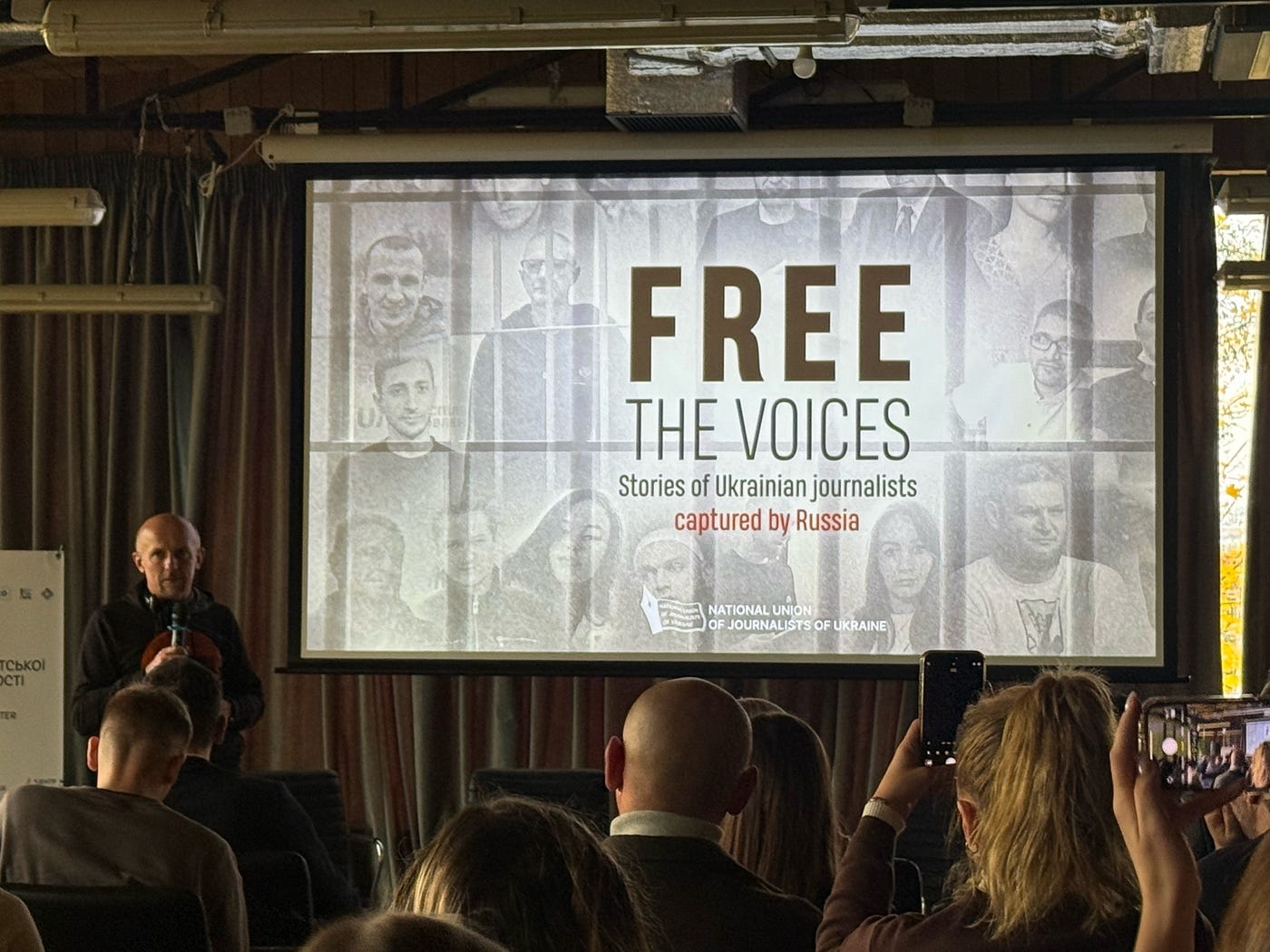
During the conference, both live and through a short film, we heard the testimonies of those who, like us, work under very difficult conditions to ensure that true, live information does not fall victim to the blows of an enemy that systematically violates every rule of international law and spreads poison in the global information space. On the battlefield and in the cities, the Russians have shown that in the war they have started against Ukraine, neither the rules learned in international law textbooks nor the conventions signed in government chambers apply.
In this war, theory dies with the first shot fired.
The Geneva Conventions state that civilians, medical personnel, and journalists must be protected. But these rules only apply if both sides honor them. The Russian Federation does not. For years, Moscow has systematically ignored every fundamental principle of the laws of war: it has struck hospitals, oncologic clinics, maternity wards, churches, UN humanitarian convoys, refugee camps, schools, newsrooms, and nuclear power plants. It has destroyed dams, energy hubs, and entire population centers in an attempt to weaken Ukrainian resilience.
Although it is meant to signify protection, the word PRESS often makes its bearer a prime target.
For a Russian drone or sniper, that symbol indicates three things: someone is filming there, there’s movement, and there’s coverage. The result is that fire is focused on that area. The voices that cannot be silenced forever in this way are seized and arbitrarily held by the Russians as bargaining chips.
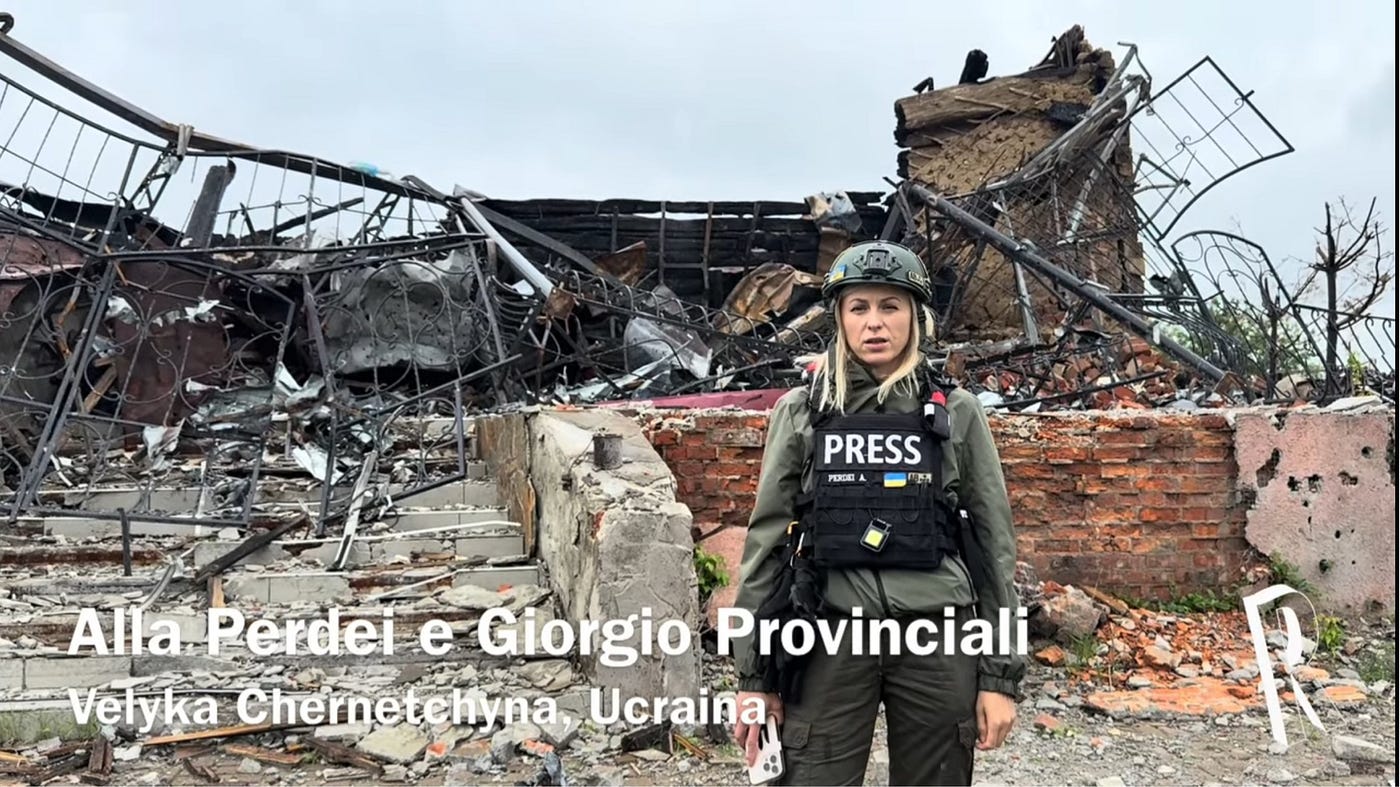
Since 2014, at least 120 Ukrainian journalists and foreign media workers have been kidnapped or imprisoned by Russian forces. This happened to Serhiy Zyhipa, who was captured in Nova Khakovka, and to Iana Suvorova and Anastasia Hlukhovska, arrested during the occupation of Melitopol’. Their testimonies, revealed during the conference, expose a shocking fact: there isn’t even an official intermediary to negotiate exchanges or determine the prisoners’ conditions. Sleep deprivation, starvation, and beatings are common in a terrorist state like the Russian Federation. Many journalists die this way: from hunger or torture. Among the most notorious cases is that of Viktoriia Roshchyna, who disappeared in August 2023 while reporting in Ukrainian territories illegally occupied by the Russian Federation. Her body was returned only in February 2025: mutilated and missing vital organs. Her death illustrates what can happen to those who continue reporting.
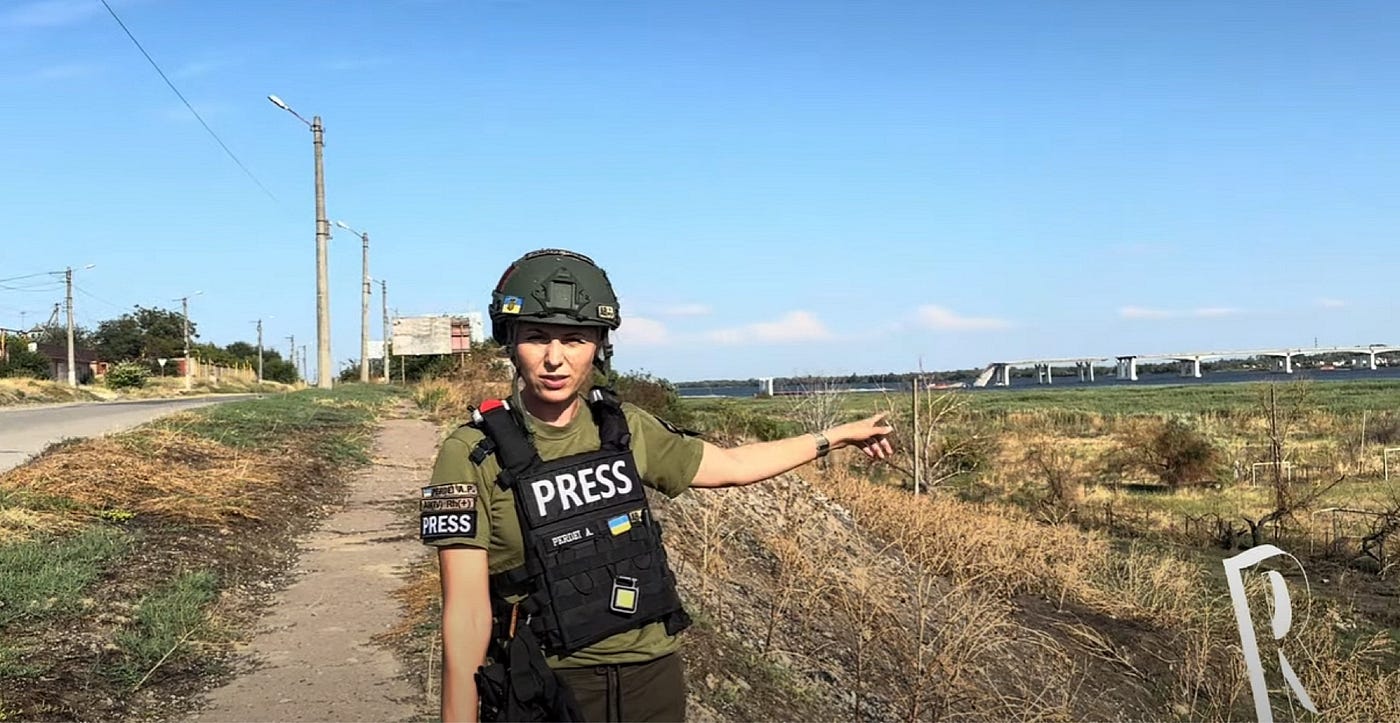
Being recognizable as a journalist often raises vulnerability not only to gunfire but also to kidnapping: reporting from disputed areas or beyond the lines makes one a potential hostage. Press protection rules become useless when someone shifts from observer to prey. The Russian Federation pretends legality through arrests and show trials for “espionage,” “terrorism,” or “sabotage,” which only serve to normalize kidnapping as a legitimate act, even though they are coercive and intimidating tactics meant to silence witnesses.
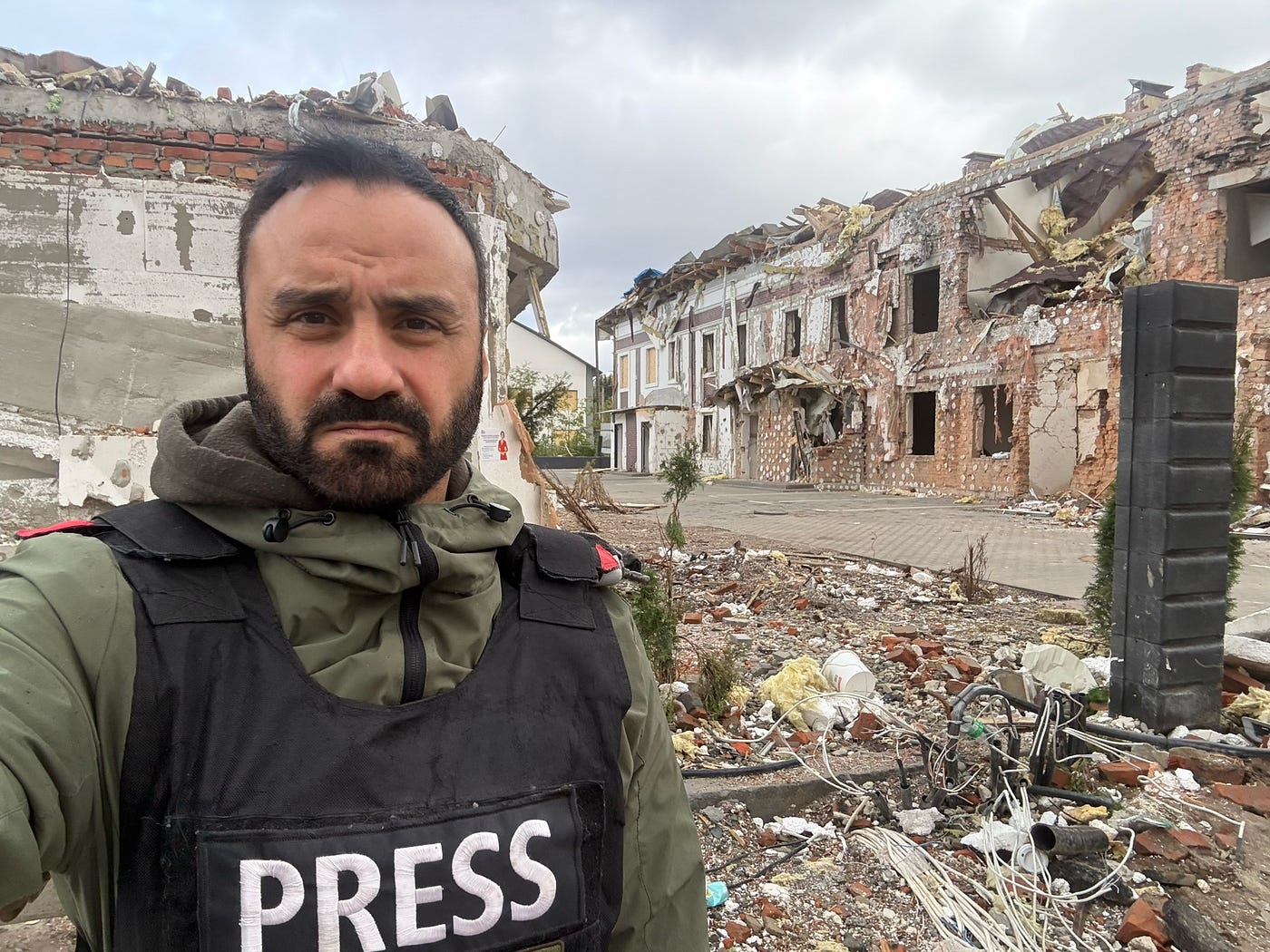
A clear example is Ukrainian journalist Vladyslav Yesypenko, who was arrested in March 2021 in Crimea on unfounded charges of espionage and manufacturing explosives. Released only in June 2025 after four years of imprisonment and torture, he stands as living proof of how Russia perceives information as a threat. Faced with an enemy that abuses children, shoots civilians, rapes, and systematically uses torture, the word “PRESS” often fails to offer protection; instead, it attracts attack and arrest.
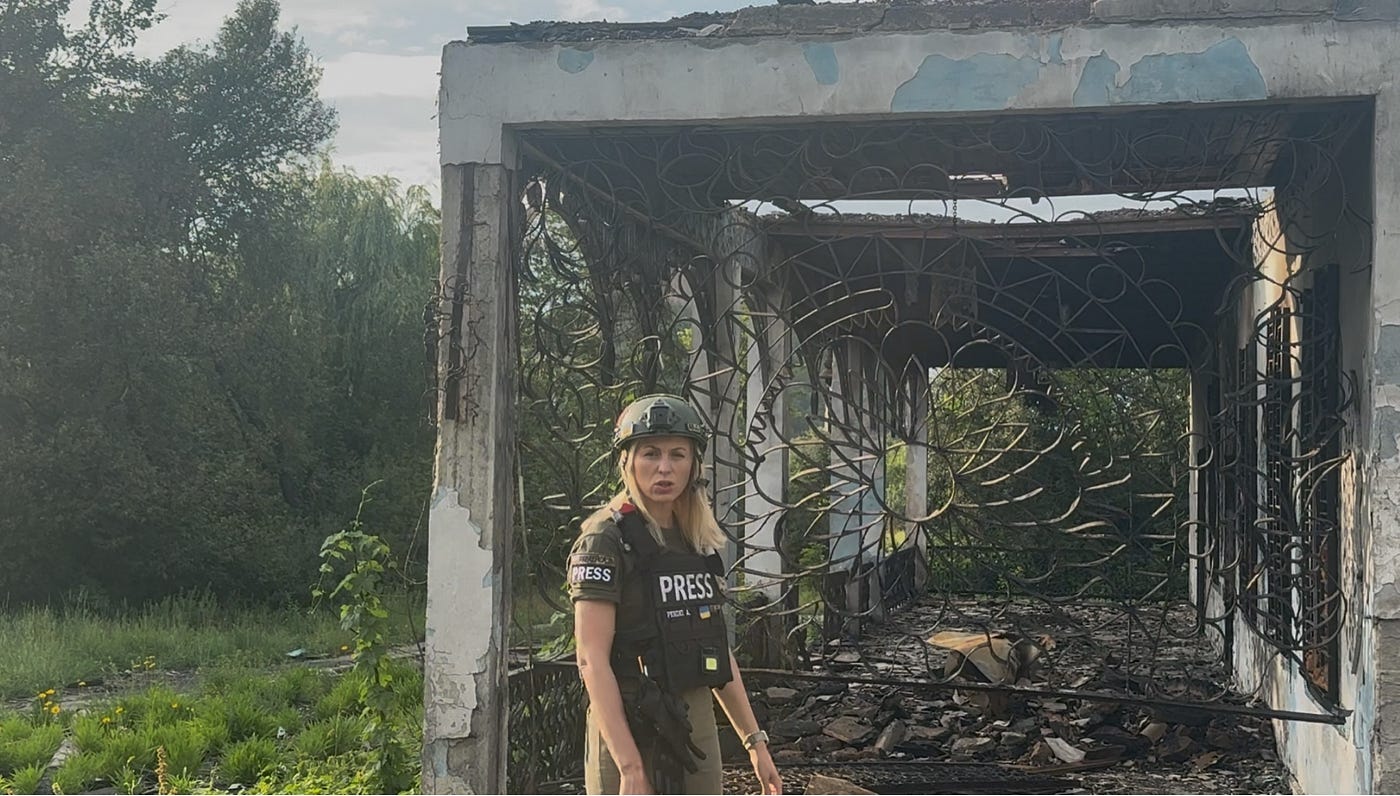
At the symposium, it became clear that these were not accidents but deliberate policies of intimidation and erasure of memory. I myself feel the weight of that inscription. Countless times, I’ve been advised to remove it because it would only expose me to greater risks. Several times, our press car has been targeted by direct attacks from Russian drones or other unmanned aircraft.
Talking about “violations of international law” as if it were a protective shield fails to fully grasp the reality of the Russian front. Protection does not depend on law but on those who respect it. And in this war, Russia does not respect it.
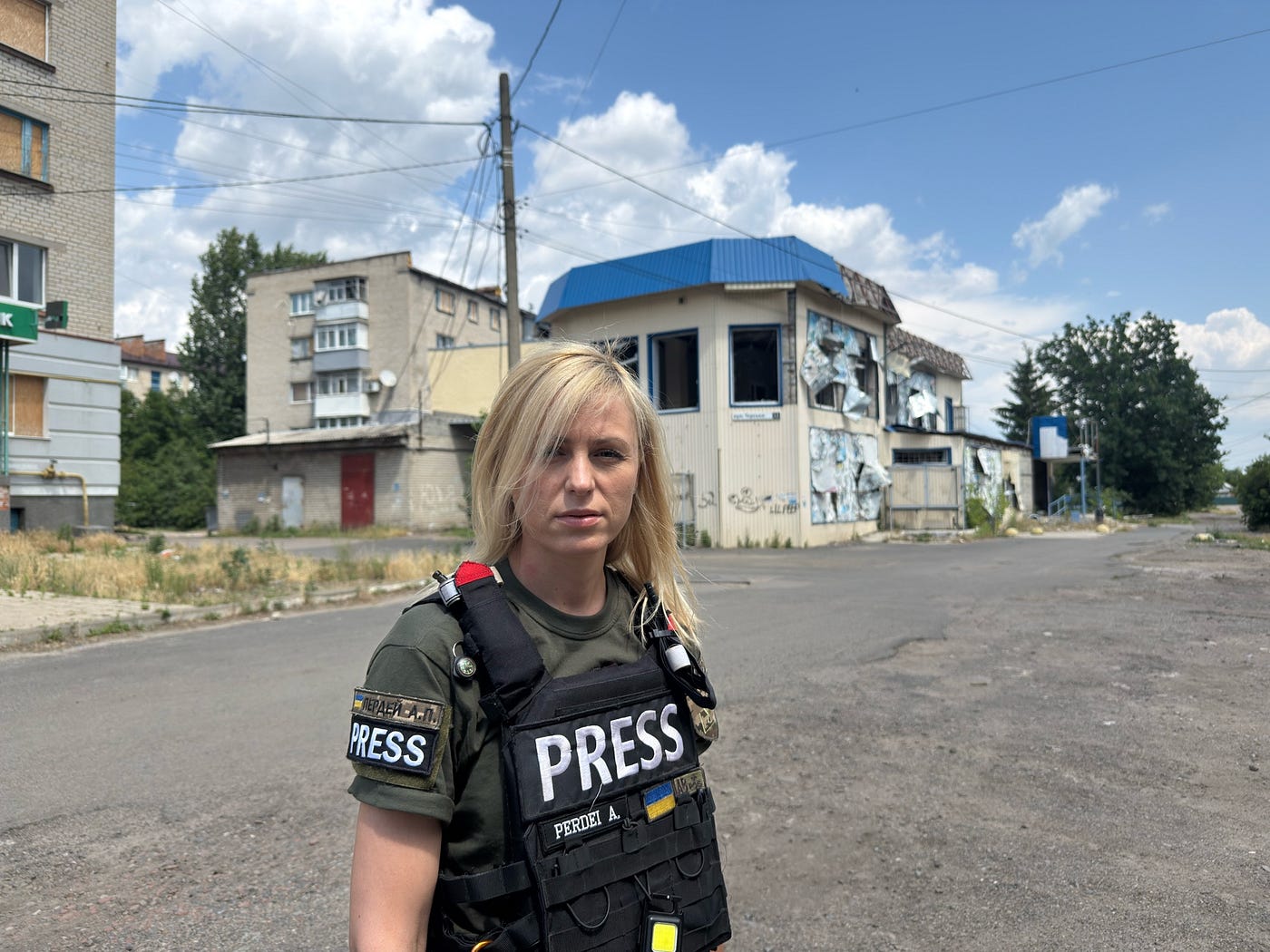
The Kyiv seminar opened a path of reflection. In three years of war, spent continuously on the front lines and in the most affected areas, I’ve noticed that countries like Italy must work hard to train media workers sent to these war zones. Disoriented, poorly educated about the dynamics and real risks, still clinging to abstract concepts that clash with reality, many journalists end up being frontline misfits. Sometimes reliant on fixers – who they often depend on for language help, geographic knowledge, and basic references in a country – or, conversely, dangerously reckless enough to expose themselves to serious risks, many Italian media workers sent here for short stays suggest that significant preparation is needed upfront.
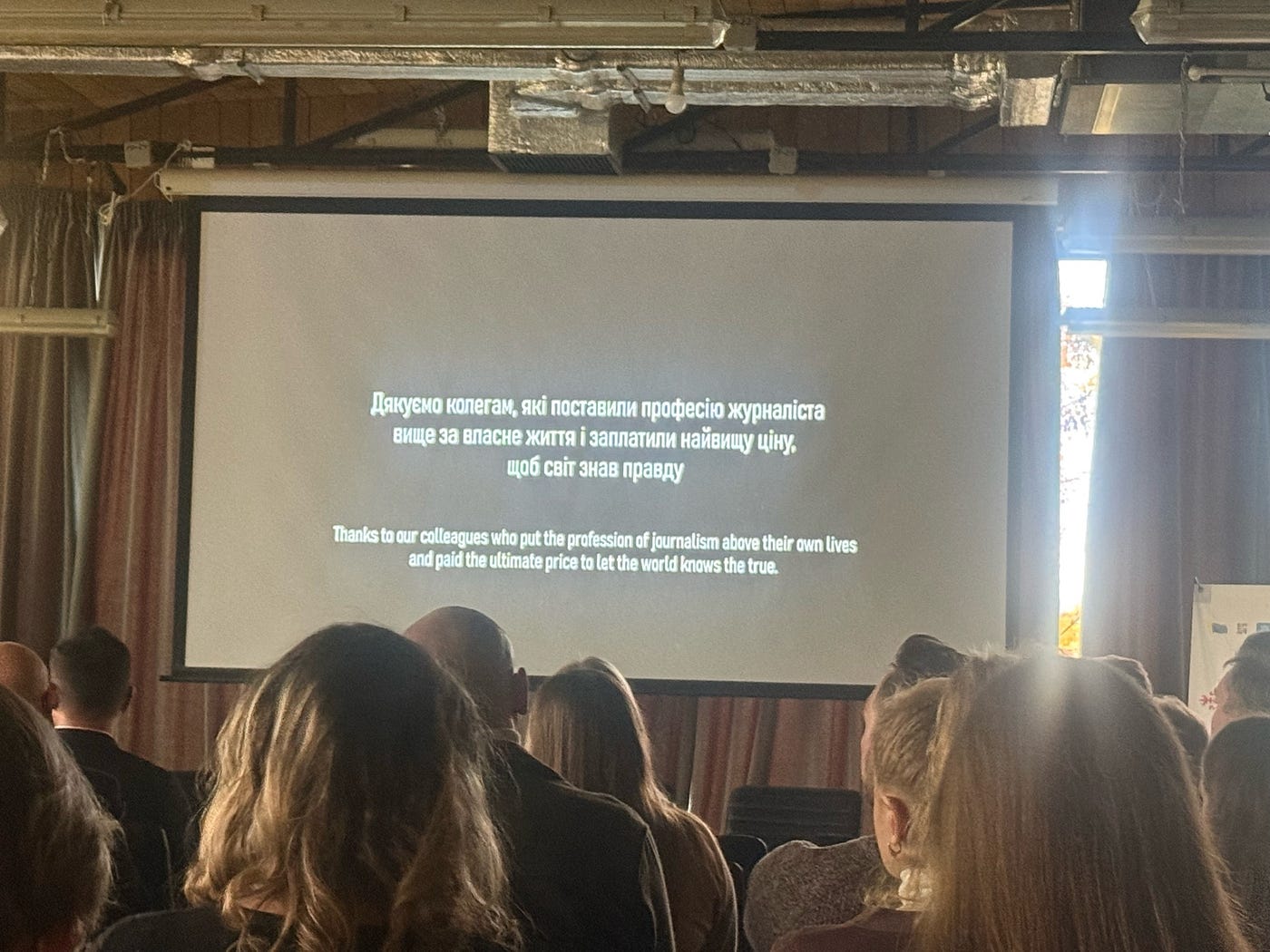
THANKS TO ALL WHO SUPPORT OUR WORK BY SHARING OUR ARTICLES AND BACKING OUR CROWDFUNDING CANPAIGN
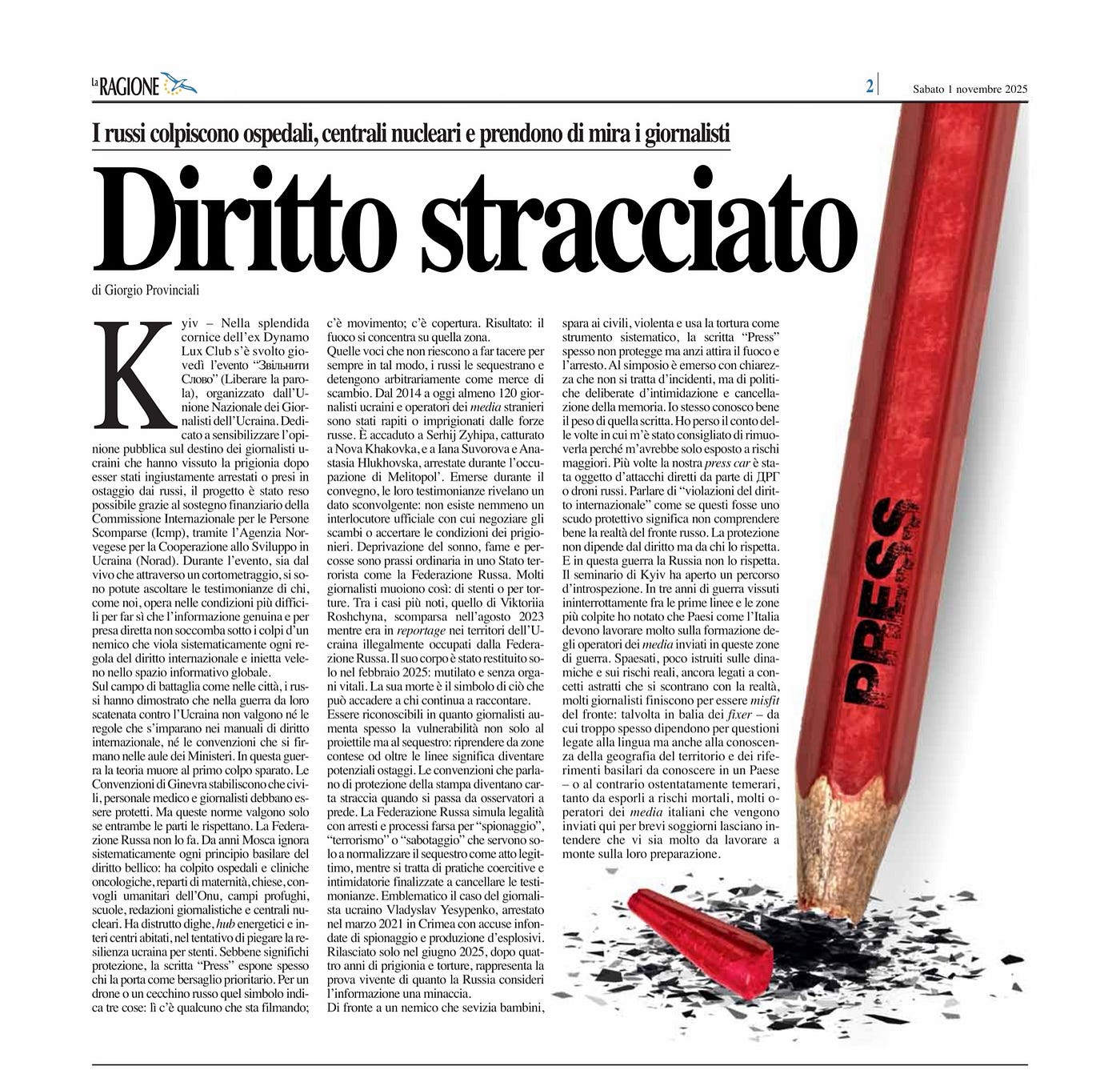
感谢所有通过分享我们的文章和支持我们的众筹活动来支持我们工作的人
帮助我们购买反无人机的“РЕБ?”设备
在过去的三年里,作为自由撰稿人,我们一直在乌克兰战争的所有前线进行报道,自从大规模…
https://www.paypal.com/pools/c/9jdpPchpGi
从观察者到猎物
作者: Giorgio Provinciali
来自乌克兰的现场报道
基辅——由乌克兰国家记者联盟主办的“自由之言” (Зв?льнити Слово) 活动于周四在曾经的迪纳摩卢克斯俱乐部的美丽场地举行。此次活动旨在提高人们对乌克兰记者命运的认识,他们被俄军不公正逮捕或被扣为人质后遭受囚禁。此次活动得到了国际失踪人员委员会(ICMP)通过挪威对乌克兰反正合作署(NORAD)的财务支持。
(图:我在本文描述的活动中拍摄的一张照片—版权所有, Giorgio Provinciali)
在会议期间,我们通过现场和短片听取了那些像我们一样在极其艰难条件下工作的人的证词,以确保真实、实时的信息不会成为系统性违反国际法每一条法则、在全球咨询空间中传播毒素的敌人打击的受害者。无论在战场上和城市中,俄罗斯人都已经表明,在他们对乌克兰发动的战争中,无论是国际法教科书中学到的规则还是国家政府签署的公约,俄罗斯人都不会遵守。
在这场战争中,道理随着第一声枪响而灭亡。
《日内瓦公约》规定,平民、医务人员和记者收到保护。但这些规则只有在双方都遵守时才有效。俄罗斯联邦不遵守。多年来,莫斯科一直系统性地无视战争法的每一项基本原则:它袭击医院、癌症诊所、妇产病房、教堂、联合国人道主义车队、难民营、学校、新闻机构和核电站。它摧毁大坝、能源枢纽和整个居民区,试图削弱乌克兰的复原力。
尽管“PRESS”一词旨在象征着保护,但它常常使携带者成为主要目标。
对于俄罗斯的无人机或狙击手来说,这个符号表明三件事:有人在拍摄、有人在移动、有人在报道。这导致火力集中在那个区域。如果这样做不能让这些声音永远沉默,俄罗斯人会即抓住并随意扣押发声的记者,作为他们谈判的筹码。
(图:Alla在乌克兰苏梅市维莱卡·切尔内奇娜报道—版权所有,Giorgio Provinciali)
自2014年以来,至少有120名乌克兰记者和外国媒体工作者被俄军绑架或关押。这其中包括在诺瓦·哈科夫卡被捕的谢尔盖·兹希帕,以及在梅利乌波尔占领期间被捕的雅娜·苏沃罗娃和阿纳斯塔西娅·赫卢霍夫斯卡。他们在会议中披露的证词揭露了一个令人震惊的事实:甚至没有官方中介机构去谈判交换或确定囚犯的条件。在像俄罗斯联邦这样恐怖主义国家,战俘被剥夺睡眠、饥饿、殴打折磨是司空见惯的。许多记者就这样死于饥饿或酷刑。其中最臭名昭著的案例之一是维多利亚·罗施琴,她于2023年8月在乌克兰被俄罗斯非法占领地区报道时失踪。直到2025年2月,她的遗体才被归还:肢体残缺,重要器官缺失。她的死说明了那些继续报道的人可能会面临的危险。
(图:Alla指向的是乌克兰一个最危险的地点:赫尔松的安东尼夫斯基桥—版权所有,Giorgio Provinciali)
被认出是记者通常会增加被攻击的风险,不仅是遭受枪击,还可能被绑架:在有争议地区或越过前线报道,意味着可能成为人质。当你从观察者转向猎物时,“新闻保护”规则就变得毫无用处。俄罗斯联邦通过对“间谍活动”、“恐怖主义”或“破坏”进行逮捕和审判来伪造合法性,这些只是将绑架作为合法行为正常化——尽管这些旨在让证人闭嘴的胁迫和恐吓的手段。
(图:我在基辅,在俄军对平民目标袭击后现场报道—版权所有,Giorgio Provinciali)
一个明显的例子是乌克兰记者瓦迪斯拉夫·叶西宾科,他于2021年3月在克里米亚以毫无根据的间谍和制造炸药的指控被逮捕。经过四年监禁和酷刑后,他直到2025年6月才获释,他的经历成为俄罗斯如何将信息视为威胁的活生生的证据。在面对虐待儿童、枪杀平民、强奸和系统性使用酷刑的敌人,“新闻工作者”这个词往往无法提供保护,反而成为攻击和逮捕的目标。
(图:Alla在乌克兰多布罗波利亚报道—版权所有,Giorgio Provinciali)
在研讨会上,这一点变得很清楚:这些事件非意外,而是蓄意实施的恐吓和抹除记忆的政策。我本人也深感这个铭文的沉重。无数次,我被建议将其移除,因为那样只会让我面临更大的风险。我们的新闻车也曾多次遭到俄军无人机或其他无人驾驶飞机的直接袭击。
把“违反国际法”当作保护盾来谈论,意味着你未能充分认清俄罗斯前线的现实。保护并不依赖法律,而依赖那些尊重法律的人。而在这场战争中,俄罗斯是不存在尊重法律的。
(图:Alla在乌克兰顿巴斯地区斯洛维扬斯克报道—版权所有,Giorgio Provinciali)
基辅的研讨会开启了一条反思之路。在三年的战争中,我一直在前线和受影响最严重的地区工作,我发现像意大利这样的国家必须努力培训被派往这些战区的媒体工作者。许多记者由于迷失方向、对局势和真实风险的了解不足,仍然执着于一些与现实冲突的抽象概念,最终成为前线的“边缘人”。有时他们依赖“修复者”——依赖他们提供的语言帮助、地理知识和当地的基本信息——或者相反,他们极其鲁莽,轻易暴露自己于严重的危险中。许多短期派驻这里的意大利媒体工作者建议,需要事先做好充分准备。
(图:我在本文介绍的会议上拍的照片,地点:利沃夫,乌克兰—版权所有,Giorgio Provinciali)
(图:我在意大利报纸《La Ragione》上的专栏—版权所有,Giorgio Provinciali)